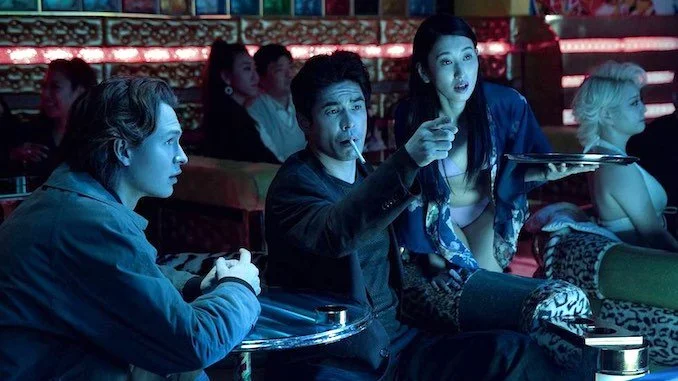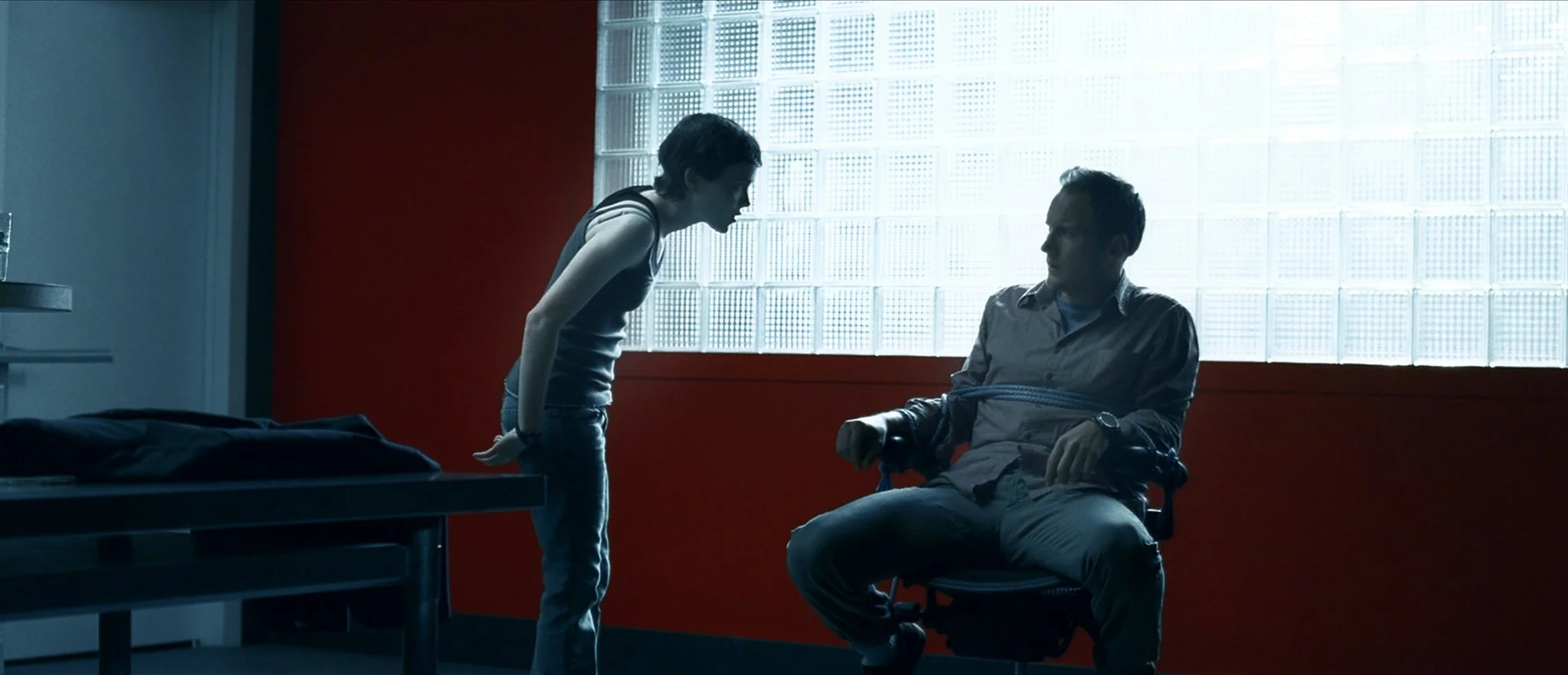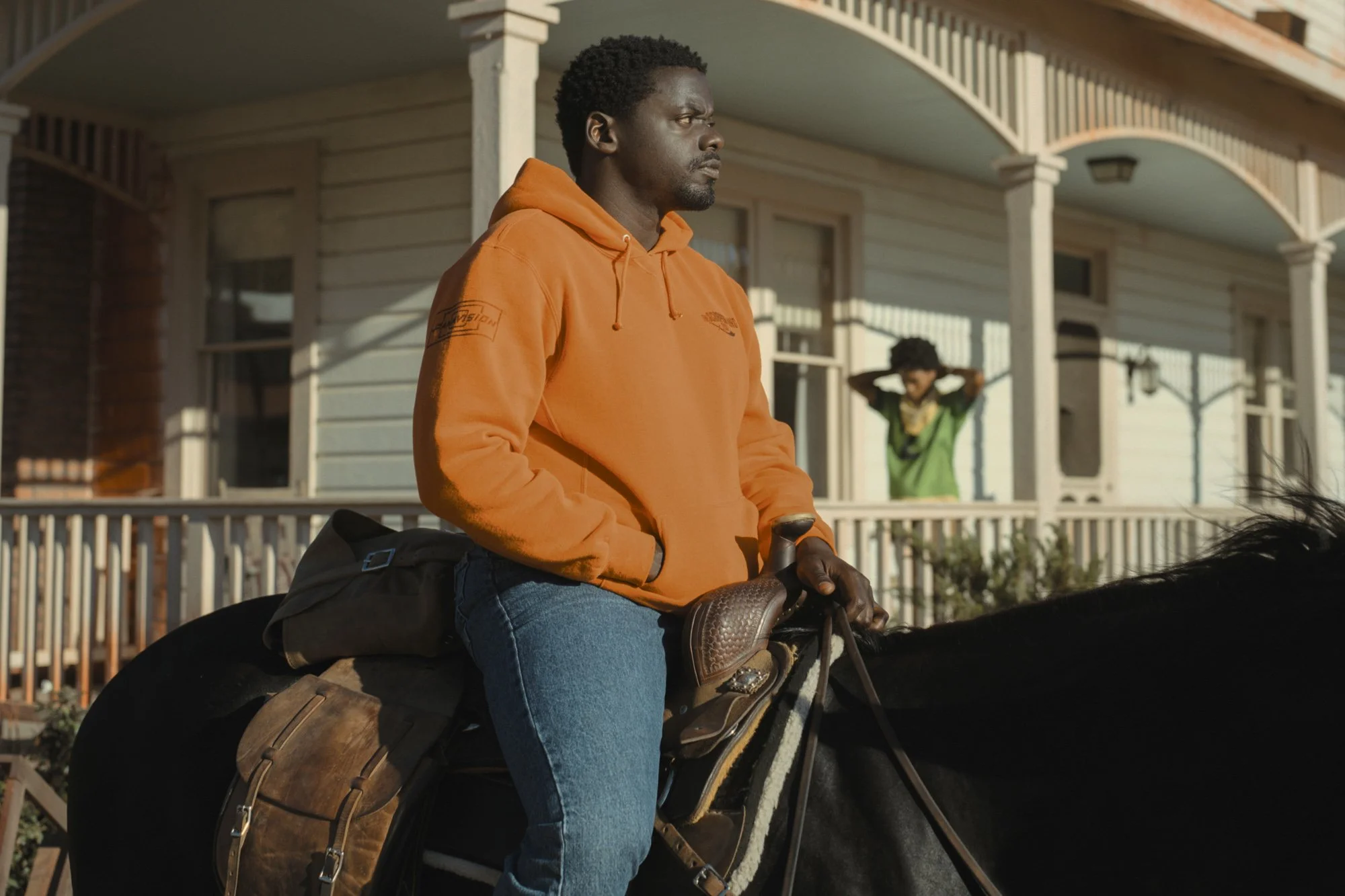Random Round-Up #2 (8/3/22 - 8/8/22)
Tokyo Vice (2022-Present)
Solid 4/10
Michael Mann is back, but unfortunately not better than ever. Tokyo Vice is the lovechild of three main contributors, Michael Mann’s production, J.T. Rogers’ writing, and the true story of Jake Adelstein. Jake Adelstein, played by Ansel Elgort, is an American journalist who has relocated to Japan in the late 90s, enrolled in an education there, and has managed to become the first foreigner working for one of the largest Japanese newspapers. The series’ pilot episode is directed by Mann, so I had high expectations for the incoming slow-burn that is the director’s signature. Instead, the first scene is a brash sequence of ultimatums that leaves you wondering why it was necessary to immediately grasp the audience’s attention when there are 8 episodes for events to properly unfold. This confusing introduction set the tone for a show that seems as lost as Jake is in the world of the yakuza.
Jake’s character is the ultimate detractor from the show’s quality. Jake is presented as a product of themes similar to films such as Memories of a Murder (2003) and Lost In Translation (2003). He is an American outcast but in the world of dark noir and a dangerous environment that he has haphazardly entered. His character development is immediately messy, as he is initially perceived as arrogant and intelligent, but the show also tries to maintain that he is naive. Much of these contradictory ideals are exhibited in a single sequence where Jake has finished his employment exam faster than all of his native competitors, but lazily forgets to check that he has completed the entire test. Nonetheless, his test score is still high enough to ensure his occupational endeavor, and the aforementioned exam loses all purpose as he faces no consequences.
Jake shows up to his first day of work and is the recipient of xenophobia and anti-semitism, with people constantly mistaking him as an intruder or spreading rumors that he is an Israeli spy. Regardless of the validity of these events, it does not serve the story well to showcase the country that the protagonist inhibits as extremely intolerant, as I find it difficult to develop any type of affinity for Jake himself. It is necessary that Jake goes rogue and becomes a vigilante, but this complete progression occurs just within the first episode. 15 minutes in, Jake is a shy newcomer, by the end of the episode, he has alliances with cops and is a reckless investigator. Critical details happen for the sake of plot acceleration, rather than there being the slow build-up that fans of Mann are so accustomed to.
All this being said, Elgort does not help his character’s case by any means. His performance is child-like and whiny, but we’re also supposed to be witnessing his growth into a badass reporter. Instead of Elgort just acting like the hardened and grave lead, it feels as though it is Elgort acting as Jake acting like a tough guy.
Tokyo Vice’s editing is also shockingly inappropriate. Adam McKay and Aaron Sorkin’s rapid dialogue and tight screenplays deserve the editing that they receive in efforts like Succession (2018-Present) and The Social Network (2010), where shots are meticulously interwoven and cut to ensure it matches the gravitas of the scenes. In Tokyo Vice, a similar style of editing is employed, often interrupting characters in the middle of a line or a reaction during a sluggish exchange; it’s not the same thing.
Hard Candy (2005)
Solid 7/10
Patrick Wilson has become a staple in the genre of horror in the past decade or so with his continuous partnership alongside director James Wan for films such as The Conjuring (2013) and Insidious (2010). To become the muse for an auteur of a genre that is so inherently shocking is rare, but it makes sense after a career retrospective of the actor. Wilson established himself as an actor who clearly does not have creative boundaries. I don’t believe it is a stretch to proclaim him as a savant of taboo themes with his powerful performances in films like Little Children (2006) and Watchmen (2009). It all began with Hard Candy (2005) though, a film so morally tortuous that watching it feels almost as sadistic as the content itself.
The film begins with an online chat room between a woman and a man who flirtatiously agree to meet up for the first time in-person. What begins as a seemingly normal online dating interaction becomes incredibly uncomfortable once the duo are united. Elliot Page plays Hayley Stark, a 14-year-old girl, who initially seems to be hiding her age, until it is revealed that Jeff (Patrick Wilson) deliberately engaged in these interactions while aware of her underaged status. This truth is made evident in one of the more chilling lines in the film where Jeff seductively states that he has to wait four more years for Hayley when she heads to a restroom to change.
Jeff is clearly a pedophile, but he attempts to make it understood that while he is attracted to minors, he won’t commit sexual actions with them. Whether it is out of morality or for legal reasons is unclear, but it is probably a mixture of both. Jeff is a fashion photographer, and Hayley is infatuated by his occupation, subsequently convincing him to bring her to his home. After some painfully awkward exchanges that showcase a clear discrepancy in maturity due to their ages, Hayley covertly drugs Jeff, having him bound to a chair once he awakes. This is where a mental, and occasionally physical, game of cat-and-mouse begins.
Once Jeff is conscious, Hayley reveals that their entire entanglement was calculated by her, as she suspected that he has been sexually abusing young girls, in addition to possibly being responsible for the disappearance of one of them. While Jeff accepts his predatory nature, he vehemently denies responsibility for the death of the missing child. As a form of reparation, Hayley claims that she is going to castrate Jeff, a threat that Jeff is relieved to find out was not truly executed, although she had convincingly led him to believe such. Throughout the film, Hayley’s different forms of mental and physical sadism are explored, and as Jeff continuously begs for mercy, it is difficult to decipher if one act of evil can be justified by another. In 2005, the U.S. began to move away from capital punishment and defeating terrorism by any means necessary, particularly through torturing suspects. The Iraq War was reaching an increasingly inflammatory state, and the morality of preemptive strikes with reasonable cause were beginning to be called into question. For a film like Hard Candy to use pedophilia, one of the most, if not the most, heinous acts of personal maliciousness, as what I perceived as a parallel for a war is incredibly bold, but maybe not totally comparable. Although, I appreciate the effort.
As you can tell, this film does not stray away from distressing themes of humanity, but it does a fantastic job of not relying on pure shock-value the way many thrillers do. There is very little gore and absolutely no nudity, which is incredibly impressive for the series of events that build up into the story’s various climaxes. Instead, Hard Candy uses stylistic choices such as hyperspeed sequences with extremely sharp coloring to emphasize the intensity of a moment, which succeeds at varying degrees.
Even though Patrick Wilson is physically constrained for much of the runtime, he emphatically makes his character’s emotional presence felt in every scene that he is a part of. Elliot Page sometimes falls into typical expressionistic tropes that are expected of teenage actors, but is consistently serviceable in her role as Hayley. Hard Candy is an extremely difficult film to watch. As properly executed as it is, it is very hard for me to evaluate a piece like this because of its jarring content. So, I am rating it from a perspective where I’m strictly judging the performances and artistic vision of the film. Hard Candy is a war of words, actions and morality, and while it is unclear who truly wins, a brutal fight is put up by both sides.
All or Nothing: Arsenal
Soft 7/10
Watching this docu-series is a personal experience for me. As a Chelsea fan, witnessing Arsenal suffer as a club comes as a pleasure, especially since Chelsea and Arsenal consistently battle for a top-4 placing in the Premier League. All or Nothing: Arsenal gives me a rare opportunity as a soccer fan though, it enables me to occasionally separate individual contributors to a rival club as real people, rather than untouchable figures of top-flight soccer.
At first, the show presents Arsenal as a club that we can all get behind; one for the people. We see interviews with fans, including fairweather celebrity-”fan” KSI, who elicits a pitiful display of passion for the club. The truth is that people do not want to support Arsenal if they are a fan of another club, and this series shouldn’t try to sway steadfast minds. Once we begin to see insight into the young mindsets of coach Mikel Arteta and youngster Bukayo Saka, a genuine sympathetic bond begins to form. The 2021-2022 Premier League season is coming off the heels of the 2021 European Championships, a tournament where England failed at the final front of victory with Saka hammering the nail into the coffin. For a player of Saka’s young age (19 years old at the time), having the weight of a country on your shoulders for a sole penalty-shot, just to fall short, probably seems like a mentally fatal wound. Instead, Saka has taken the hurdle in stride and aims to break out as the true leader of this youthful Arsenal club.
After the Euros, even with a loss, Saka has become a household name in England. For athletic teams in the United States in leagues such as the NBA and NFL, the feat of earning a draft selection can put you into immediate spotlight. In soccer, it is a much longer and developmental progression, where you can only reach true stardom at an international level. Obviously, the continent of Europe is a grander stage than the U.S., effectively thrusting Saka into unprecedented scrutiny. In one intimate conversation with teammates, the young player explains how the staff of a restaurant that he frequents now waits outside for him, rather than treating him like a regular customer. Such reverence can cause a player to lose sight of themselves, and that struggle is one that Saka must balance as he continues to propel upwards.
Just because Mikel Arteta is a former professional player and has been on elite coaching staffs, he is not spared from the same learning curve that Saka is having to endure. Arteta formerly spent time as an Assistant Coach of one of the best clubs in the world, but not even that has prepared him for the minutiae of being a gaffer. Not only does he have to tactically orchestrate his squad, he must also manage polarizing personalities, the media and owners who have blessed, or cursed, him with a €140 million spending spree during the past summer. Again, for those who aren’t totally familiar with how the player market works in soccer, transfer fees basically place a seemingly objective value on athletes based on subjective reasoning. During the off-season, Arsenal completed their third most expensive signing in franchise history, a €50 million signing for center-back Ben White. Thus, both White and Arteta are constantly attached to that price tag as the success of the club defines whether or not the investment has paid off, which is vital in fans’ and the owners’ eyes.
Throughout this series, Mikel Arteta is presented as an embodiment of the club’s progress; if they suffer, him alongside them, if they succeed, him alongside them. Within the first episode, the possible imminence of Arteta getting fired is constantly discussed, and you begin to root for the coach who seems to have an endless list of responsibilities. Furthermore, his personal passion for the club and the sport is undeniable. Legendary managers such as Jose Mourinho are known for being publicly outspoken about the quality of their squad’s play, but Arteta consistently internalizes it and blames himself, effectively translating disappointment into fuel for his next big locker-room speech. The faces of some of players like Granit Xhaka and Pierre-Emerick Aubamayang sometimes display a sense of bewilderment by the manager’s visceral emotions, but there seems to be a unanimous level of respect to at least let the man devolve into his tangent if he would like to.
We all know Arsenal made it into European competition, albeit not the Champions League, at the culmination of last season, but it was still a year full of major improvements. Now it is time to see what the 2022-2023 season has in store for the Gunners after another summer of spending and additional pressure added upon the squad’s mantle.
Nope (2022)
Solid 8/10
I’ll make this brief because you should check out our other full review of the film from fellow cinephile Henry O’Brien, but I share much of the same feelings expressed in the review. In essence, Nope is a story of man vs. nature built off a basis that considers the objectification of living entities (humans and animals) that media production entails. Production studios always want to push the limits of what can be practically orchestrated and what technology needs to compensate for. This elicits a power struggle between the controllable and uncontrollable, a relationship that is symbolized through O.J. (Daniel Kaluuya) and Emerald (Keke Palmer), as they attempt to capture an “Opera shot”, a shot that is so absurdly impractical that it would immediately garner widespread attention. What are they trying to film though? It is a flying saucer, but not much else is known about it besides the fact that it abducts people, the same way UFOs have been stereotypically illustrated in film. Another question is if it's inherently an aggressive entity, or if it's been aggravated to the point of a meltdown, similar to a story told by former child star Ricky Park (Steven Yeun) where he witnessed the first-hand consequences of tampering too far with nature. Instead of appreciating the extraterrestrial phenomenon for what it is, O.J. and Emerald plan to exploit it, just as some may feel about their family lineage’s cinematic history with horses.
The juxtaposition of Ricky with O.J. is essential to the film as well. After Ricky’s traumatic experience, he devotes his life to exploiting nature and its inhabitants without any regard for their quality of life. In contrast, O.J. clearly has a deep connection with his horses due to his pedigree, but forsakes the empathy he normally has for nature in order to take advantage of the once of a lifetime opportunity that this UFO is. He eventually finally begins to understand and sympathize with this inanimate flying object because he realizes it is a living organism, but it’s too late to compensate for his shallow initial desires.
I don’t want to reveal anymore, as it truly is a viewing experience that you should go into relatively blind. Go watch it.




